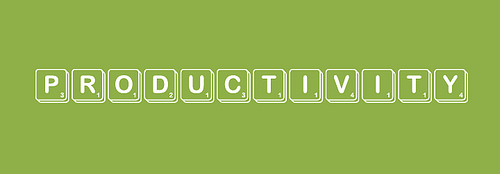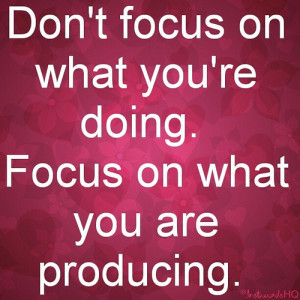Are You Being Productive Or Just Keeping Busy?
March 19th, 2014 by
Over two months have passed in 2014, and like most of you, I can honestly say that I have been very busy. I would be willing to bet that 50+ business days into the year, I, like a lot of you reading this have logged 150-200 hours of meetings, and have received and answered well over a over a thousand emails. Doesn’t that sound busy? This past weekend, as I was doing my weekly review, I found myself wondering, have I been productive as well? Have I been focusing on the projects that will make Search Influence a great place to work? What about the things that will allow us to serve our customers better? How much time have I (and the teams I support) put into developing the Internet Marketing products that will help our customers succeed online tomorrow?


If you find yourself wondering the same thing, or worse, in an honest moment, answering no to that question, here are three things that you can do to avoid being busy, yet unproductive.
1) Review your long-term initiatives or goals on a regular basis


In the book Getting Things Done, the author David Allen challenges readers to undertake a weekly ritual wherein they will review and process everything in their inbox, their to-do lists (that’s right, lists), their previous and upcoming calendars, and their projects or “larger outcomes,” I find that this review of my long-term projects and initiatives, or “larger outcomes” allows me to ask myself if I gave each of these areas the attention they deserved, and to make sure that I have some actions or meetings teed up to assure that I keep moving toward success in the upcoming week. Think about it, if you move the needle on the 4-5 of the most important things every week, in 3-6 months, you will have made a significant impact on some areas that are important to you.
2) Be ok with saying “no” occasionally
Remember those thousand emails that you have processed so far this year? Or the over 150 hours of meetings? Chances are, in a few of those, someone has asked you to take on a small project or task. If you have a reputation for being someone who can get things done, you might get asked for help in more than a few. I completely get the urge to tell everyone “yes.” In fact, I think that you should be looking for ways to tell people “yes” whenever you can. Sometimes, the best way to support the people who are asking you for help is to tell them “no.” Two potential benefits immediately come to mind:
- Hopefully the initiative you chose to prioritize over helping someone will have a positive impact on all parts of the organization you are working in, including theirs.
- By telling them “no,” you may be empowering an employee to try to complete the task or solve the problem on their own.
There are also other ways that you can say “no,” while offering to provide some support:
- Offer someone else in your part of the organization as a resource. Who knows, the task or assignment may even be a good developmental opportunity for someone more junior.
- Ask if your support or action is needed right now. If not, perhaps you won’t have to tell them “no,” just “maybe later.
3) “Unplug” To Focus


How many potential communication inputs do you have to distract you during the workday? Here are mine:
- Chat
- Text
- Phone
- Face to Face
- Social Media
Those are six ways that anyone who needs me can get in touch with me at any point throughout the day. Those are also five potential distractions if I am trying to work on something that needs my undivided attention.
When was the last time that you set three hours aside to work on something extremely important, but three hours and six interruptions later, your three hour window was shut, and you had barely made a dent in your project? Now, I will be the first to admit that as a manager, it is hard to take actions that make it seem like I am not available to support my teams.
Availability


And how available are you in these meetings you are in anyway? I have found that there are times when I need to eliminate (ok, minimize) the potential distractions by unplugging from all communication devices (except my cell phone, of course).
If anything is important, but not urgent, it will be waiting for me when I plug back in. And if anything is urgent, I let my teams (and my family) know that in an emergency, I can be reached via my cell phone.
Then I turn to whatever it is that needs my undivided attention and try to knock it out. Again, hopefully, whatever it is I am working on will have a significant impact on those that I have chosen to unplug from for a few hours, so in the long-run they will benefit, too.
In short, its very easy to stay busy these days. There is always a meeting to go to, a text we could respond to, emails to deal with, and unplanned, “urgent” work to be done. And all of that has to get done. The challenge is making sure that you are handling the things that are not extremely urgent, but are critically important.
How do you make sure that you are getting to the things that matter most to your organization and the people who depend on you?


[…] Are You Being Productive Or Just Keeping Busy? Leave a comment […]
Check out the video below the article: http://www.inc.com/lolly-daskal/12-destructive-habits-you-need-to-stop-right-now.html?cid=sf01002&sr_share=facebook
Right in line with this blog.